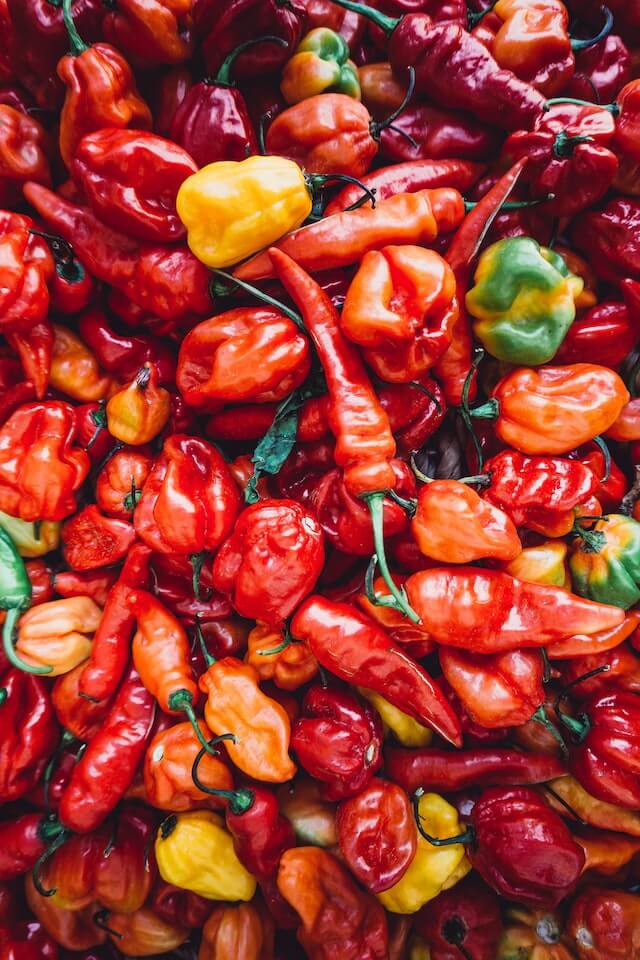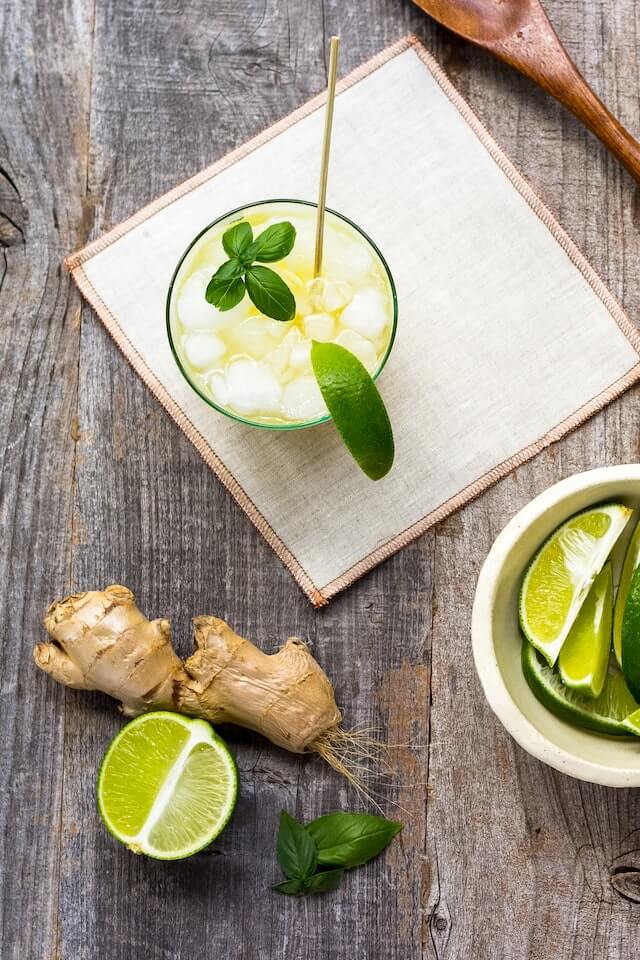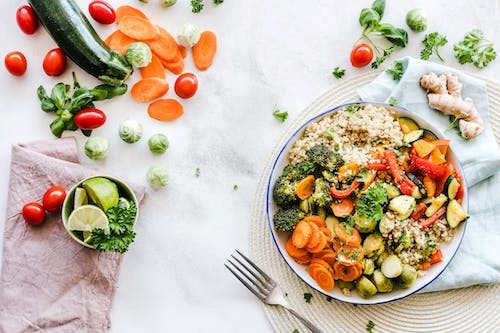Over half of Americans have a medical condition that’s expected to continue for the next 12 months or longer, significantly impacting their overall quality of life. Preventing chronic disease isn’t only one of the best ways to extend your life span. It’s also crucial for reaping more joy from each day and avoiding the economic devastation that often accompanies health care woes in the United States and beyond.
More physicians today recommend a holistic approach that includes modifying lifestyle factors influencing your risk. Numerous studies have drawn links between diet and chronic disease, and improving your weekly meal plan is one of the best ways to prevent new health woes and manage existing ones.
How can changing your diet make you feel better? What should you avoid and eat more of? Here are the eight best foods to ward off chronic disease.
Diet and Chronic Disease: The Link
What’s the link between diet and chronic disease? Several factors come into play. One is how various foods impact your blood sugar. For example, a diet high in ultra-processed foods loaded with sugar and white flour contributes to being overweight and eventually obesity, which influences type 2 diabetes risk.
Sugar goes straight into your bloodstream as energy, with your liver converting the extra to fat and your pancreas pumping out insulin to regulate your levels. However, long-term excessive intake impacts this organ’s ability to produce sufficient amounts of the hormone, leading to type 2 diabetes.
White flour may be even more problematic, as manufacturers strip away the nutrient-rich bran and chaff, leaving a mass of empty calories that absorb as quickly as sugar. Additionally, these products contain a chemical byproduct called alloxan that scientists use to destroy the pancreas in laboratory animals. The combination is not good for human health.
Blood sugar isn’t the only link between diet and chronic disease. For example, excessive intake of unhealthy fats increases your risk of high cholesterol and heart disease.
Deficiencies can also contribute – and many of us don’t get enough of certain vitamins and minerals despite sufficient caloric intake. For example, a magnesium deficiency can drive major depressive disorder, with supplementation an effective treatment. And who could forget that insufficient vitamin C intake can cause scurvy? That’s pirates 101.
Preventing Chronic Disease With These 8 Best Foods
Eating too much of the wrong thing can harm you, as can depriving yourself of the good stuff. What do you need to know besides what to avoid? Here are tips for preventing chronic disease by incorporating more of these eight best foods into your diet.
1. Turmeric
Turmeric is a magical anti-inflammatory spice, especially when mixed with black pepper. It contains curcumin, a powerful anti-inflammatory agent that increases bioavailability by 2,000%, thanks to the piperine in the pepper.
Where can you find this exotic spice? It’s a staple in many Indian dishes like chicken tikka masala. However, it also tastes divine when added to your morning tea or coffee – buy bags or shave a bit of the raw root in with your grounds. You’ll see no shortage of supplements on store shelves, but look for those with black pepper for the maximum effect.
2. Ginger
Ginger is an incredibly healing herb that adds a touch of sweetness to many dishes. It’s probably best known as an effective tummy-trouble remedy, reducing inflammation and the gas that can lead to bloating and discomfort.
However, you won’t get much relief from reaching for a can of pop. That’s because most commercial soda brands contain little, if any, of the raw herb. One woman even sued Canada Dry because of the lack. You’re better off sipping ginger tea, and, like turmeric, you can shave the raw herbs directly into coffee grounds, too.
3. Garlic
If you can’t get enough garlic in your cooking, you’re doing your body a favor. Your partner might not like kissing you right after you finish a bowl of spaghetti, but remind them that you’re loading your body up with antimicrobial and anti-inflammatory goodness.
Garlic contains allicin, a substance that offers the following laundry list of benefits:
- Lowers blood pressure
- Supports your arteries and veins
- Lowers cholesterol
- Protects against cancer
Whether or not these bulbs ward off vampires remains a matter of conjecture. However, you should feel good about adding it to your meals for all the other impressive perks.
4. Peppers
If you read the ingredients list on many over-the-counter anti-inflammatory creams, you’ll notice capsaicin listed on the label. This stuff exists in hot, spicy peppers, with the amount measured by the Scoville scale. Fortunately, the fiery stuff can cool inflammation from the inside out, and you don’t have to go nuclear to reap the benefits.
Of course, you might enjoy feeling the burn. Here’s a list of peppers from mildest to hottest to help you adjust the flavor when adding them to meals:
- Pepperoncini
- Poblano
- Chipotle
- Jalapeño
- Cayenne
- Habenero
- Scotch Bonnet
- Carolina Reaper
Only bell peppers rank 0 SHU. However, please don’t shun them – they have other impressive health benefits. For example, red bell peppers have more vitamin C than an orange.
5. Fatty Fish
Fatty fish are among your best foods for preventing chronic diseases of the body and mind. They contain your best source of omega-3 fatty acids, which are crucial for cardiovascular health because they keep smooth tissues and blood vessels pliable.
Omega-3’s also play a key role in mood regulation and preventing mental disorders. Researchers associate Alzheimer’s disease with a decline in DHA – a type of omega-3 – but regular consumption of fatty fish can raise your levels and potentially stave off illness.
6. Nuts and Seeds
Nuts and seeds can be valuable omega-3 sources for vegans and vegetarians who don’t embrace pescetarianism. Chia and flax seeds are rich in these vital nutrients. However, that isn’t the only benefit these tiny foods confer.
Nuts are high in minerals that support positive mental health, helping you avoid depression and anxiety. They have magnesium, selenium, and zinc, all of which are crucial to maintaining healthy neurotransmitter levels. Seeds also contain these minerals, along with lignans, which are proteins that help balance your hormones. Some women have success regulating their menstrual cycle using seed cycling.
7. Deep, Leafy Greens
Deep, leafy greens are also beneficial for preventing chronic disease. They’re rich in B vitamins that perform various roles in your body. For example, folate is essential for expectant mothers to help prevent neural defects in their developing fetuses.
These foods are also high in potassium and low in sodium and cholesterol. That makes them beneficial for heart health, and cardiovascular disease remains the number one killer.
8. Colorful Fruits and Vegetables
Finally, colorful fruits and vegetables round out this list of the best foods for preventing chronic disease. Mother Nature is kind – she provided human beings with a color code. Each hue corresponds to a different phytonutrient profile – ingredients essential for optimal human health.
Therefore, you should strive to eat the rainbow every day. Try to include at least three colors in every meal, preferably from plant-based sources.
Preventing Chronic Disease Through the Right Diet
Numerous studies have demonstrated the link between diet and chronic disease. Using holistic methods is a fabulous way to promote good health. You now know what to add to your diet for preventing chronic disease. Play around with the above ingredients and mindfully tune into the improvements in your body and mind.





